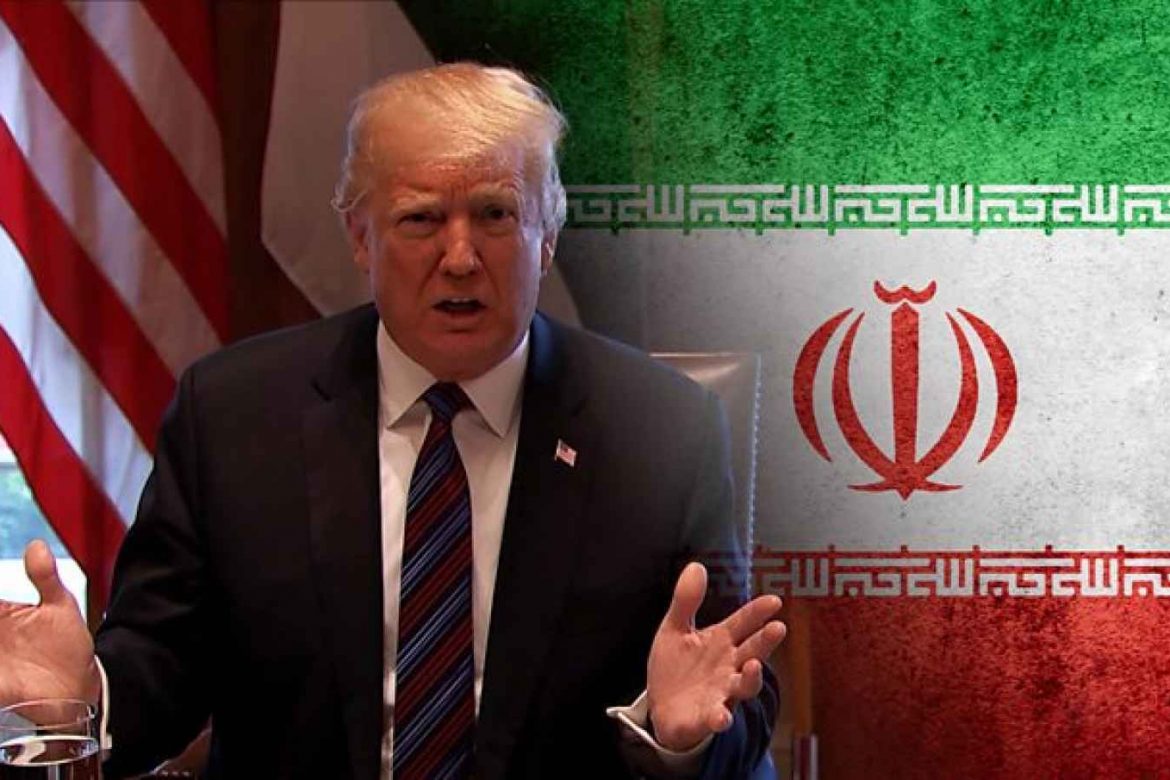‘Don’t Go Wobbly’ on Iran
- Iran has, indeed, seen its economy crumble, inflation and unemployment soar, and its oil exports rapidly fall to under 200,000 barrels a day from more than two million.
- In short, through a combined policy of military restraint and economic pressure, the Trump administration has shifted the entire discussion on Iran.
- No longer is preserving the JCPOA the issue, but rather jettisoning it and perhaps starting over. No longer is the use or abuse of American military power the focus of debate, but rather Iran’s terrorist activities — not just against America and Israel — but against the entire world’s energy sources.
 Under the American administration’s “maximum economic pressure” campaign, Iran has seen its economy crumble, inflation and unemployment soar, and its oil exports rapidly fall to under 200,000 barrels a day from more than two million. Iran’s financial and military support for the terrorist organizations Hezbollah and Hamas also has markedly declined. Pictured: An oil production platform in Iran’s Soroush oil fields. (Image source: VOA) Under the American administration’s “maximum economic pressure” campaign, Iran has seen its economy crumble, inflation and unemployment soar, and its oil exports rapidly fall to under 200,000 barrels a day from more than two million. Iran’s financial and military support for the terrorist organizations Hezbollah and Hamas also has markedly declined. Pictured: An oil production platform in Iran’s Soroush oil fields. (Image source: VOA) |
Since the Islamic Republic of Iran was created in 1979, the regime in Tehran has been at war with the United States and its allies, revealing itself to be an expansionist nation, the world’s leading state sponsor of terrorism, and having “blood lust for its enemies.”
The 2015 signing of the Joint Comprehensive Plan of Action (JCPOA) — which Iran did not sign — and otherwise bafflingly known as the “nuclear deal with Iran,” was falsely claimed by its supporters in the West to prevent the ayatollah-led regime from obtaining nuclear weapons, even though its most salient feature was its “sunset clause” enabling Iran to have as many as it liked in just a few short years. As the Israeli government repeatedly warned, the JCPOA actually “put Iran on a glide path” towards a nuclear-weapons capability.
Furthermore, the Iranian government refused to allow the International Atomic Energy Agency (IAEA) to inspect sites at which there was suspected nuclear activity for military purposes. It was not until the Israeli Mossad retrieved a trove of documents from a warehouse in Tehran in mid-2018 that concrete evidence of such activity was shown.
It was partly on the basis of the above evidence that US President Donald J. Trump made the final decision to withdraw from the JCPOA in May 2018, and to reinstate sanctions against Iran’s regime. The US administration’s move was criticized heavily by America’s European allies, such as France and Germany, which sought to work around the sanctions by providing billions of dollars of credit to Iran and trade through a system called INSTEX.

